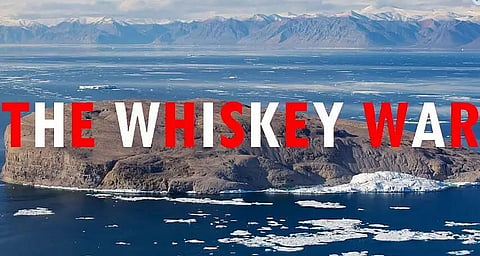
- Home
- Live Blog
- Breaking News
- Top Headlines
- Cities
- NE News
- Sentinel Media
- Sports
- Education
- Jobs

Bidyut Kakati
(Advocate, Gauhati High Court)
Mohandas Karamchand Gandhi once said, "I appeal for cessation of hostilities, not because you are too exhausted, but because war is bad in essence." It was rightly observed by Gandhiji that whenever there is a war there are no real victors as all the parties involved in the war have to suffer numbers of casualties on both sides. War may bring threatening consequences like injury, disability, death, sexual violence, malnutrition, Post Traumatic Stress Disorder (PTSD), depression and anxiety; civilians are displaced, infrastructure of the countries at war are destroyed and the resources for subsistence that a country requires for its people are shattered as well. There are numerous disputed territories all around the globe today, and countries try to bring an end to such disputes by either resorting to invasion, war and some even resort to terror attacks, examples of which are the Russia-Ukraine war which is going on since 24th February, 2022, the 2020 to 2022 China-India skirmishes, Pakistan's continued terror attack on India etc. The possibility of peace between these countries does not seems to be close at hand.
In this context, the intriguing story of the 'Whisky War' also known as the 'Liquor War' needs mentioning today and there are lessons these aggressor countries needs to learn from the 'Whisky War' as war has manifold devastations not only to the engaged countries but also has implications on the rest of the world.
Denmark and Canada have initiated a composed way to call a halt to the disputed territory - 'Hans Island.' Hans Island is a a Canadian and Greenlandic island that is an uninhabited, barren rock in the Arctic which is of 1.3 Sq. km, located in the centre of the Kennedy channel of Nares Strait with no known reserves of oil or natural gas. But despite being an uninhabited island there was a dispute going on between these two countries claiming this little rock island as their own. Hans Island is the smallest of three islands in Kennedy Channel off the Washington Land coast; the others are Franklin Island and Crozier Island. The island is named after Hans Hendrik (1832 – 1889) a Kalaallit interpreter and an Arctic explorer who worked on the American and British Arctic expeditions from 1853 to 1876. Since 1971, both Denmark and Canada have been striving to reconcile their respective claims over Hans Island. Both Denmark and Canada claim this island as its own by virtue of the International treaty according to which any island which is in 12 miles of mainland comes under the territory of a country than it technically allows a country to make a claim over that island. Successive expeditions from Ottawa and Copenhagen have braved icy conditions to plant bottles of alcohol on the tiny 1.2 sq km rock island.
The war began after the countries convened to settle boundary disputes in the Nares Strait, a channel 35km (22 miles) wide of cold water separating Canada and Greenland, an autonomous territory of Denmark. In 1973 they made a deal to create a border through the strait, but while they negotiated, competing claims emerged over the tiny island. In 1984, Canada when it landed troops on the rock they planted their maple leaf ?ag and buried a bottle of Canadian whisky making a bold step for ownership over the island which provoked their counterpart. Accordingly, Denmark's Minister of Greenland A?airs couldn't stand such provocation and weeks later he began a journey for Hans Island, where he replaced the o?ending Canadian symbolism with a Danish ?ag and a bottle of Copenhagen's ?nest schnapps. He went one step further ahead of the Canadians and left a message with a note "Velkommen till den danske' (Welcome to the Danish Island) along with a bottle of brandy and this is how this war originated and got dubbed as "Whisky War". Since then, there have been numerous trips to the island from both countries to replace the other side's offerings.
During the signing ceremony in Ottawa, Foreign Affairs Minister Melanie Joly said "We are setting a precedent. We are showing to other countries how territorial disputes can be solved." It is possible to settle a disagreement, and it's always the best way to do it through principles and norms that both parties recognize". On the contrary Danish Foreign Minister Jeppe Kofod said "It sends a message to the world, including (Russian President Vladimir) Putin, that when there are things you're disputing over, you have to make the resolution based on international law – not by the law of force, but by the force of law." Terming the 'Whisky War' as the friendliest of all wars, both the foreign ministers exchanged bottles of liquor at the ceremony with a decision that both Denmark and Canada have decided to roughly split the disputed island and with this it brought an end to the friendliest/most passive-aggressive war ever fought to an end, that spanned over 50 years over an uninhabited island. Although this war has had serious significance in their history, but what a lighthearted way to bring an end to a war, 'The Danish-Canadian Border Conflict' popularly known as the 'Whisky War'! Kudos to both the countries.